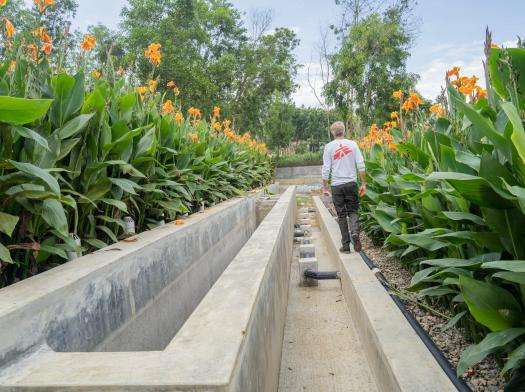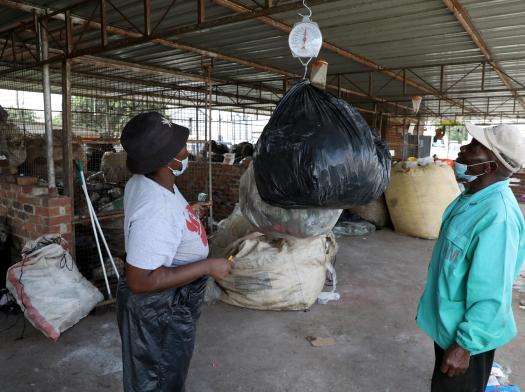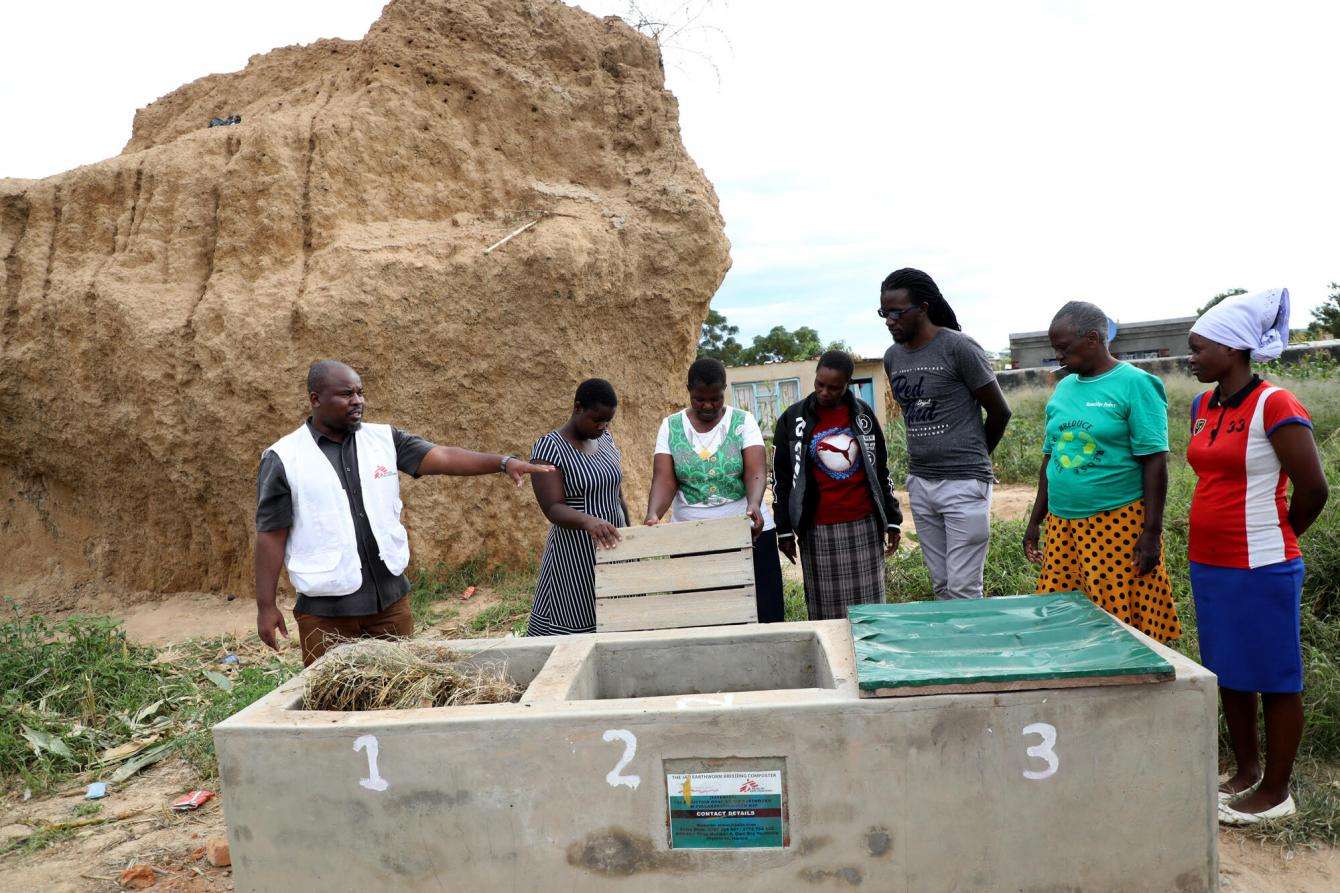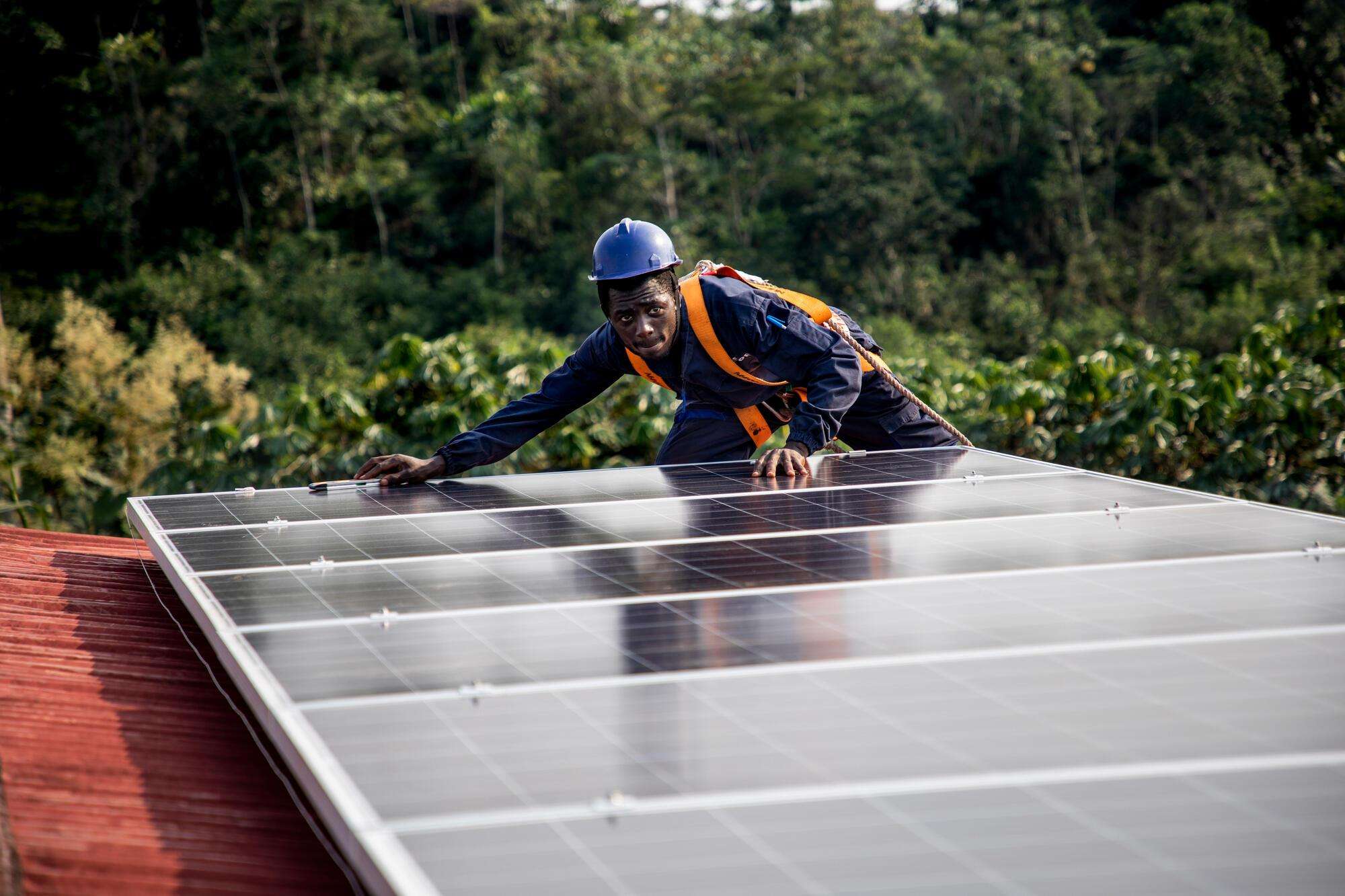From flooding in South Sudan and Pakistan to historic droughts in Somalia and Burkina Faso, Doctors Without Borders/Médecins Sans Frontières (MSF) teams are witnessing the consequences of climate change and extreme weather on the health of our patients, staff, and their communities. That’s one reason why MSF has committed to cutting our global carbon emissions by 50 percent by 2030.
At MSF-USA, this effort is guided by the work of Urooj Amjad, who manages our new carbon footprint reduction project. Amjad helps advise MSF-USA on ways to make our humanitarian work and support services more sustainable, while also identifying best practices from across the MSF movement and the humanitarian sector at large. After extensive research and planning, she has drafted a road map for MSF-USA to reach our carbon reduction goals.
“Carbon reduction is a part of a bigger puzzle which we in MSF are conceptualizing as ‘planetary health,’”she explained. Planetary health focuses on the connection between environment and health. Although the vast majority of excess carbon emissions are produced in the United States and Europe, people living in countries that produce far less—including many of our patients and staff —often bear the brunt of the consequences. In the contexts where we provide aid, we see how warming temperatures, heavy rains, droughts, and other climate-related disasters lead to increased rates of food insecurity and malnutrition, as well as diseases like cholera, malaria, and dengue.

An MSF staff member visits a human waste treatment plant in Cox’s Bazar, Bangladesh, where hundreds of thousands of Rohingya people are taking shelter after fleeing targeted violence in neighboring Myanmar.
Bangladesh 2022 © Saikat Mojumder/MSF

Trash is weighed at the waste transfer station in Mbare, a suburb of Harare, Zimbabwe. In an effort to stop the spread of waterborne disease, MSF supported a range of sanitation initiatives with local partners including setting up this transfer station and offering cash for the exchange of recyclables.
Zimbabwe 2022 © Believe Nyakudjara/MSF
“For planetary health to be more recognized and explicit in our work just makes sense—not just medical sense, but basic humanitarian sense,” said Amjad. “You can put a bandage on a wound, but if you do not stop whatever is causing that wound each time, we aren’t really addressing the problem.”
As an international medical humanitarian organization, the biggest source of MSF’s carbon emissions is travel. Now, a new travel system allows staff to see the emissions associated with different flight options, and an extra budget to choose the most environmentally friendly itinerary. Staff are also encouraged to hold remote meetings whenever possible to avoid unnecessary carbon emissions. Amjad is also working with colleagues to develop practical recommendations on responsible travel and to learn best practices for video conferencing as another way to meet.

Climate emergency
An in-depth look at how MSF is responding to environmental crises
The climate emergency is a complex challenge, and it can be difficult to know where to start when it comes to making a difference. Although it can feel like an insurmountable problem, Amjad feels it is essential to stay focused on finding solutions, no matter how small.
“We are seeing the consequences of the climate crisis already, so I am motivated,” she said. “And I have a young son who will grow up in this world. It makes me very sad that he may not see some of the same beauty that I did. He may have to live through extreme weather, and who knows what kind of food and water insecurity he might experience, thanks to my generation and the generations before me. And even if you don’t have children, you know your efforts against climate change are for generations to come.





